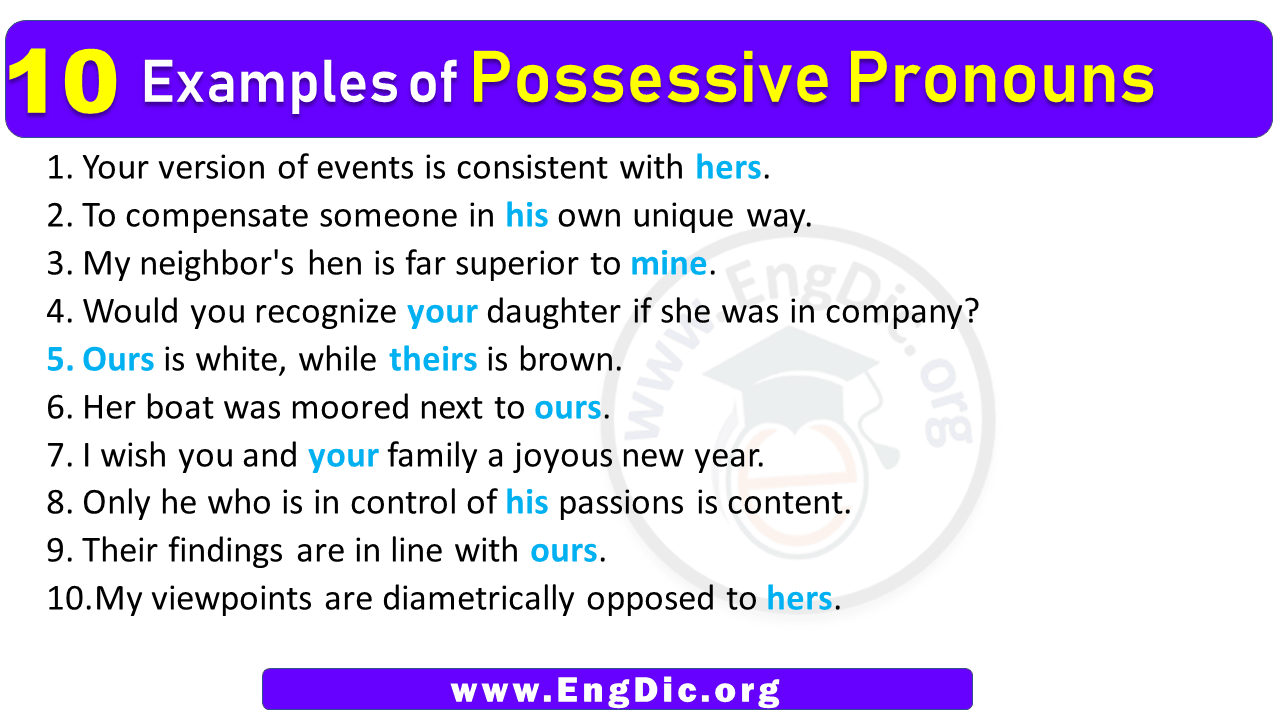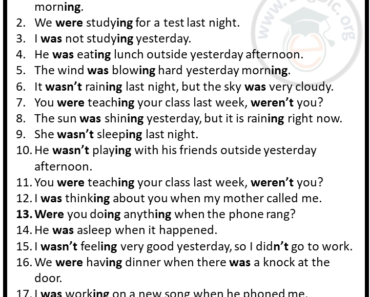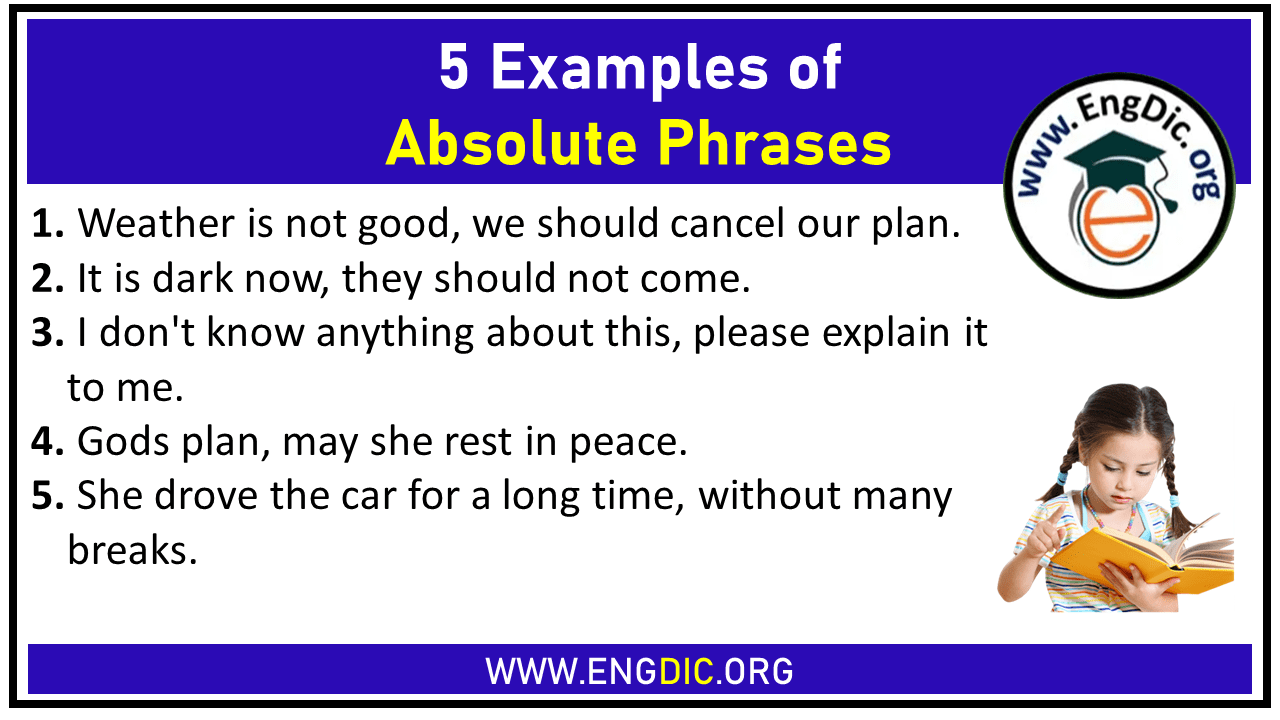10 Examples of Possessive Pronouns in Sentences! Possessive pronouns are words that demonstrate ownership, and they play an important role in the English language. Possessive pronouns are used to show that something belongs to someone or is associated with them. There are many examples of possessive pronouns in sentences, and understanding their use can help you communicate more effectively.
In this article, we will look at 10 examples of possessive pronouns in sentences to illustrate their use.
Related: 100 Examples of Possessive Pronouns
10 Sentences using Possessive Pronouns and an Explanation
1. This book is mine.
In this sentence, “mine” is a possessive pronoun that replaces the noun “book” to show that the book belongs to the speaker.
2. The keys are hers.
Here, “hers” is a possessive pronoun that takes the place of the noun “keys” to indicate that the keys belong to the person being referred to as “hers”.
3. Is that your car or theirs?
In this sentence, “theirs” is a possessive pronoun that refers to the car belonging to someone other than the speaker or the person being addressed.
4. He took off his hat and held it in his hand.
In this sentence, “his” is a possessive pronoun that replaces the noun “hat” to show that the hat belongs to the person being referred to as “he”.
5. The cat licked its paw.
Here, “its” is a possessive pronoun that replaces the noun “cat” to indicate that the cat is doing something to its own body part.
6. We need to clean our room.
In this sentence, “our” is a possessive pronoun that shows that the room is belonging to more than one person who is being referred to as “we”.
7. I have lost my wallet.
Here, “my” is a possessive pronoun that replaces the noun “wallet” to show that the wallet belongs to the speaker.
8. She admired his painting.
In this sentence, “his” is a possessive pronoun that replaces the noun “painting” to indicate that the painting belongs to the person being referred to as “he”.
9. Their house is bigger than ours.
In this sentence, “ours” is a possessive pronoun that refers to the house belonging to the person or people being referred to as “we”.
10. The teacher collected our papers and graded them.
Here, “our” is a possessive pronoun that shows that the papers belong to the group of people who are being referred to as “we”.
Singular Possessive Pronouns Examples:
Singular Possessive Pronouns are pronouns that indicate ownership of something by a single person, animal, or thing.
Examples include my, yours, his, hers, and its.
- My: My phone is ringing, can you hand it to me?
- Yours: Is this jacket yours or someone else’s?
- His: His dog is barking loudly in the backyard.
- Hers: The red bicycle is hers, not mine.
- Its: The tree has lost its leaves in the autumn.
Plural Possessive Pronouns Examples:
Plural Possessive Pronouns are pronouns that indicate ownership of something by two or more people, animals, or things.
Examples include our, yours, theirs, and yourselves.
- Our: Our house is located on the corner.
- Yours: Are those your bikes or ours?
- Theirs: The garden tools are theirs, not ours.
- Mine: The blue backpack is mine, but the green one is hers.
- Yourselves: You can help yourselves to some snacks.







